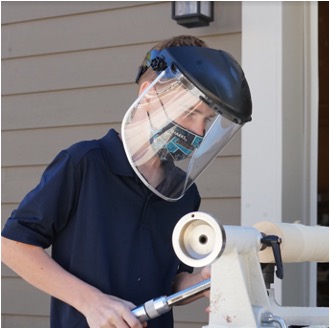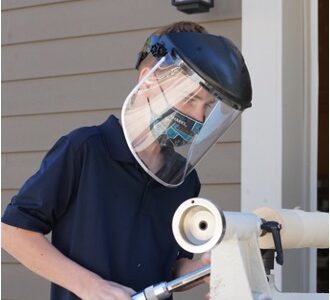Click here to listen to this week’s JAM – Make Your Education Matter More.
This past week, I had an opportunity to visit several colleges in New England with my middle child. As we toured different schools, several themes emerged – each school emphasized how they are looking for high school students who take a rigorous course of study and do well in it, students who have a compelling story about who they are, what they have done in high school, and why they want to go to (fill in the blank) school, students who are self-starters and risk-takers, who are eager and able to contribute to whatever school they join. None of that is surprising, of course, although it is notable to me how the structure of many high school programs – AP-driven, rote learning models – actually impedes the ability for students to explore, take risks, and develop a sense of who they are and what they are looking for in a college.
When most schools described their programs it was equally unsurprising, with one exception. Listening to the students and admission officers at Northeastern I was inspired to see that they were offering something authentically different from the other schools. While their program might not be the right one for all students, including my own son, I listened to them and thought – this is what all schools need to be thinking about as they imagine the future of education.
So what do they do? At the heart of the Northeastern program is an emphasis on learning by doing. The most unusual offering is co-ops, something that every student does at least once and often twice or even three times during their tenure at the school. Co-ops are 4-6 month periods where a student works at a company. These are real, paid jobs, not internships, and they are coordinated by the school and happen as part of the undergraduate experience. Students work at biotech companies, big four accounting firms, engineering firms, Washington DC K-street consulting firms, hospitals, law firms and Silicon Valley start-ups. As they note, there is no better way to learn about yourself and your professional interests, and make connections between those professional interests and your academic experience than to actually work in real places with real people.
In addition to co-ops, they offer multiple tier-1 university research pathways and traditional semester-abroad programs. The expectation is that students will participate in as many of these learning experiences as possible, and, listening to the students we met, they were taking full advantage of the opportunity.
Spending time on the campus, I had the sense that this was a school that was balancing rigorous academics with real-world learning experiences, that understood that students in college are ready to do things – not just sit in large lecture halls and passively prepare for mid-terms and finals – and that it is up to colleges and universities to help them structure those experiences. In a time when more and more people are questioning the value of higher education (only 41 percent of 18-29 year olds said that a college education was important in a Gallup survey in 2019, down from 73 percent in 2013) , schools like Northeastern are making the case that college is invaluable.
It was inspiring, and it spoke so powerfully to the type of experience we are designing at Hillbrook. I am confident that our mixture of advanced studies courses, immersives, and real-world learning options will be the perfect preparation for top colleges and universities and will help distinguish our graduates from the other schools. And, most importantly, the education we provide will matter to our students today and into the future.

